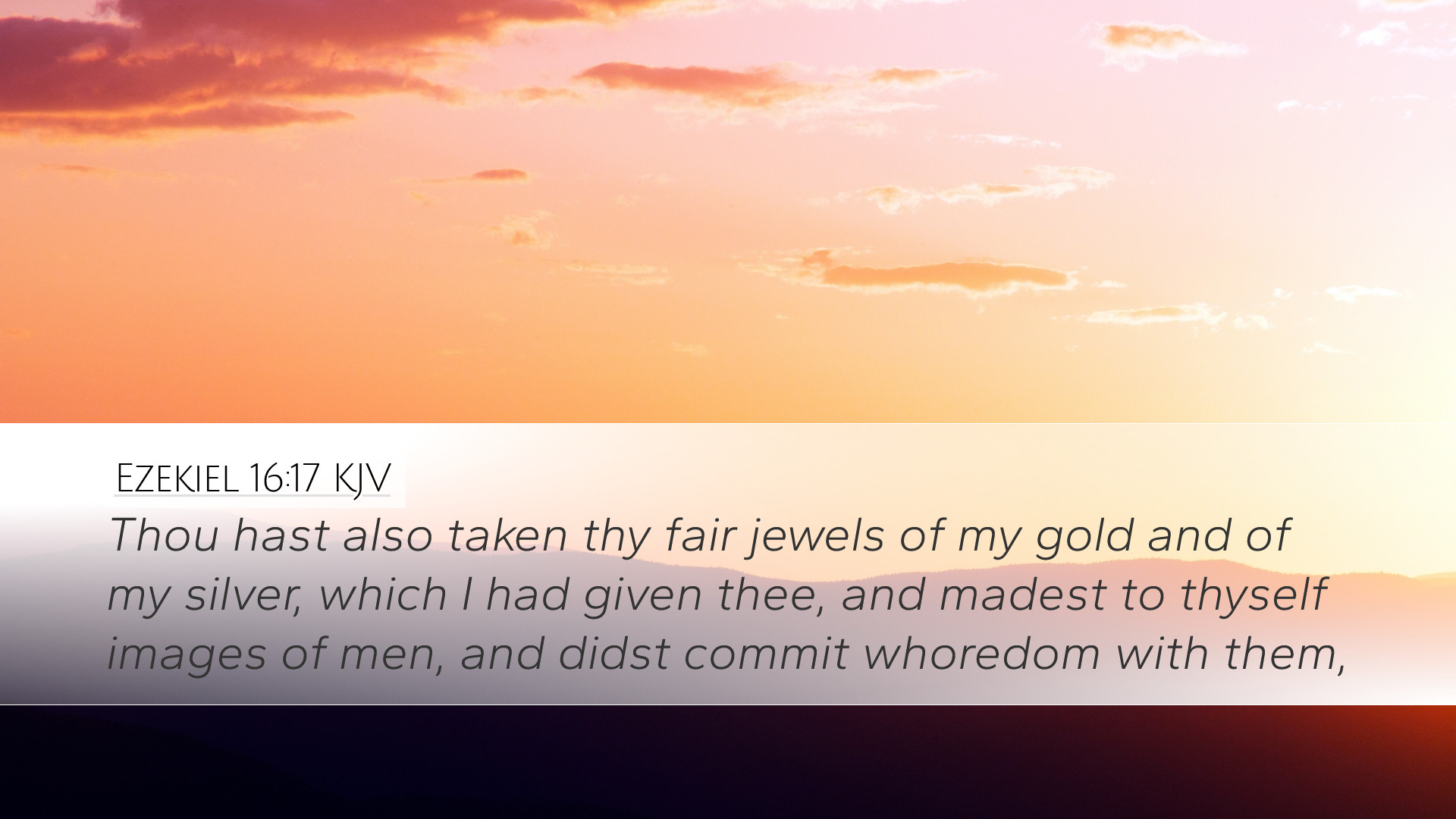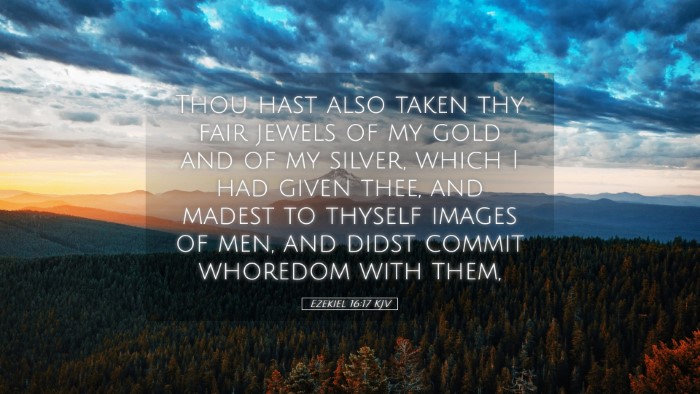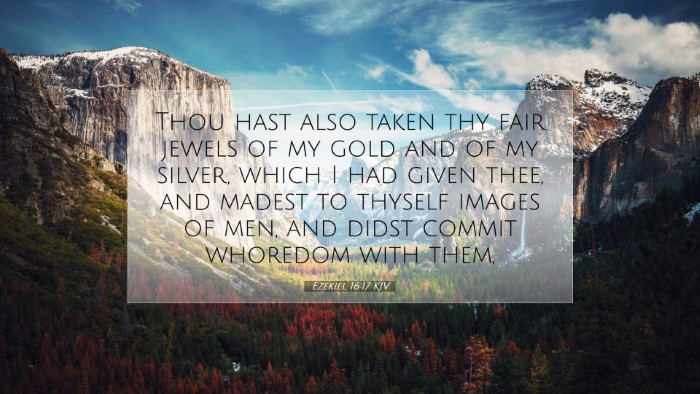Ezekiel 16:17 - Commentary Compilation
Ezekiel 16:17 states: "Thou hast also taken thy fair jewels of my gold and of my silver, which I had given thee, and made to thyself images of men, and didst commit whoredom with them." This verse encapsulates a profound moment in the prophetic declarations of Ezekiel, highlighting Israel's unfaithfulness to God and the grievous nature of idolatry.
Contextual Overview
In the broader context of Ezekiel 16, the prophet employs vivid imagery to portray Jerusalem as a woman abandoned and unfaithful, who has turned to idolatry. The chapter progresses from her origins, delivered and beautified by God, to her subsequent betrayal. This verse serves as a pivotal point, emphasizing the transformation of God's gifts into instruments of sin.
Theological Insights
- The Giver and His Gifts: Matthew Henry elucidates that God has bestowed precious gifts upon His people, represented here as "fair jewels of my gold and of my silver." These gifts symbolize not only material wealth but also His glory and favour, which they have misused.
- Idolatry as Spiritual Adultery: Clarke highlights the term “whoredom” in this context, framing Israel's idolatry as a shocking betrayal akin to infidelity in marriage. It underscores the covenant relationship between God and His people, where faithfulness is paramount.
- Images of Men: Barnes points out the specific reference to "images of men," indicating that the Israelites created idols in likeness of human beings, reflecting their rejection of God in favor of pagan worship practices. This act diminishes the divine nature and sovereignty of God.
Historical Context
In understanding Ezekiel 16:17, one cannot ignore the historical backdrop of Israel during the times of the divided kingdom, particularly the northern kingdom's fall and the subsequent decline in Judah. The allure of surrounding nations and their religious practices presented a constant temptation. This verse acts as a stark reminder of the cultural pressures faced by the Israelites and the ever-present challenge of remaining faithful to God amidst such influences.
Linguistic Considerations
The Hebrew word used for "fair jewels" suggests beauty and value, emphasizing the preciousness of what was given to Israel by God. The term for "images of men" (תַּמּוּרֹות, "temuroth") implies a transformation or substitution, highlighting the notion of replacing divine truth with falsehood.
Application for Today
For pastors and theologians, this verse serves as a potent reminder of the dangers of turning blessings into idols. Modern applications can be drawn from how material successes, talents, or even ministries can be misused or become sources of pride rather than avenues for glorifying God.
- Reflection: How can we ensure that the gifts we receive from God do not lead us away from Him?
- Accountability: Creating communities that encourage accountability and transparency can help safeguard against the spiritual pitfalls depicted in this verse.
Commentator Perspectives
- Matthew Henry: He remarks on God’s disappointment and the deep sense of betrayal felt because His gifts were turned toward sin and rebellion.
- Albert Barnes: Barnes emphasizes the moral deteriorating effect of idolatry on the nation, illustrating the societal consequences of abandoning God's way.
- Adam Clarke: Clarke passionately argues against any manifestation of turning God's love and provision into tools for sin, urging believers to reflect upon this grave error.
Concluding Reflections
Ezekiel 16:17 serves as a poignant warning in the biblical narrative. As the Church navigates contemporary challenges, may this verse call us back to our first love—Jesus Christ—ensuring that we remain vigilant against the temptations that seek to distort our worship and relationship with God. The prophetic words of Ezekiel resonate through time, inviting each believer to search their hearts and reassess their commitments to the God of their salvation.


